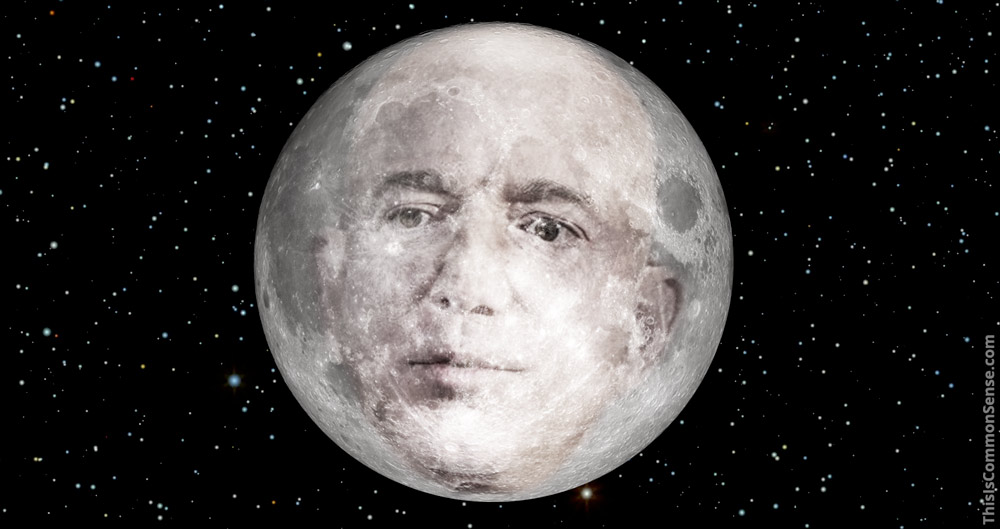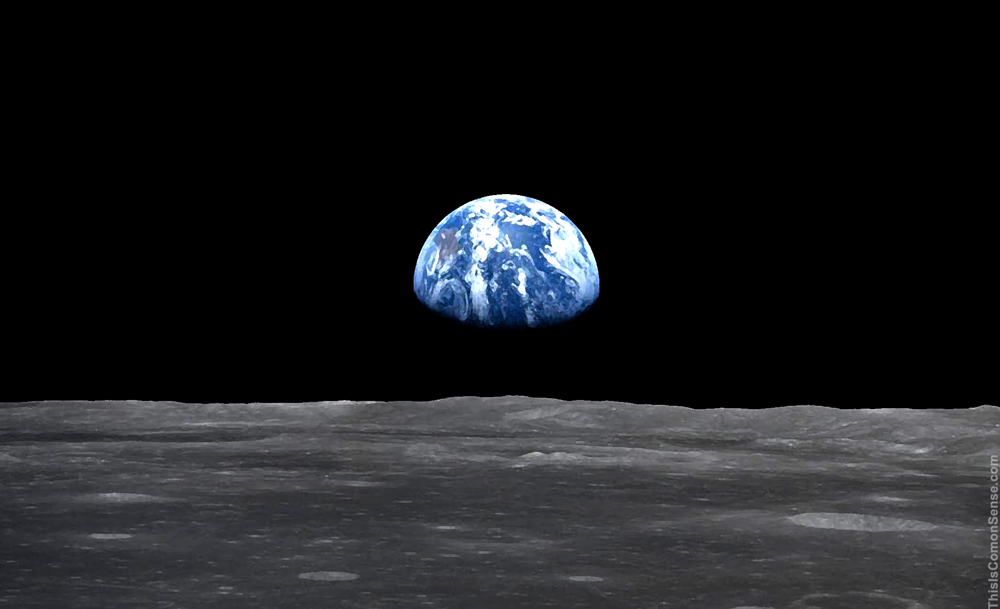Something big may be about to happen.
Trump impeachment? Financial collapse? War with Iran? — each is all-too-likely, none desirable. But I am referring to space.
In The Economist, May 14th, we read of Jeff Bezos’s itch to live off-planet.
The article is “Amazon’s boss reckons that humanity needs an HQ2,” which tells us that on “May 9th the founder and boss of Amazon, who also runs Blue Origin, a private rocketry firm, unveiled plans for a lunar lander. ‘Blue Moon,’ as it is called, is just one phase of a bold plan to establish large off-world settlements.”
And then comes the obvious literary-cultural reference: “It is a vision ripped directly from 20th-century science fiction.”
Can we dismiss it as space opera, though? A number of major figures, not least of whom is Elon Musk (whose Space X has often been mentioned here), are talking seriously about near-term orbital, lunar, and Martian habitation.
It is hard to wrap my head around an imminent private space colony project. It has always been something for the indefinite future, not something I expected to see.
There remain scoffers, of course (and they may well be right), as well as more paranoid speculations — are the higher-ups, the most insidery of insiders, tipping their hand to a “breakaway civilization” event, perhaps to avoid worldwide catastrophe?
“People now have more information” than in the past, wrote Thomas M. Disch in The Dreams Our Stuff Is Made Of: How Science Fiction Conquered the World (1998), “and they are smarter, overall, as a consequence — even in those ways they choose to be dumb.”
I am keeping an open mind on whether Bezos’s proposed lunar colony is dumb or genius.
This is Common Sense. I’m Paul Jacob.
N.B. The government is also jumping on board the Moon bandwagon, with the president floating a similar-to-Bezos schedule.

—
See all recent commentary
(simplified and organized)



